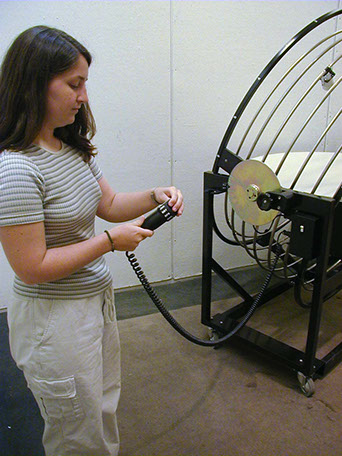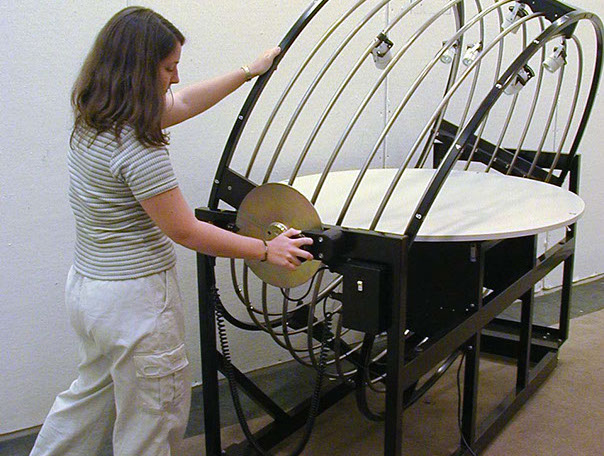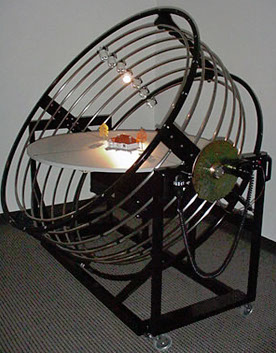Sun Emulator Heliodon





The Sun Emulator at Southern Polytechnic State University, Georgia. The hours of the day are simulated by rotating the rings.
The months of the year are selected with a rotary switch.
The latitude is selected by rotating the ring cradle.
The heliodon folds up for shipping and storage.
Sun-angles can be simulated for any place on earth, for any month, and for any hour of the day.
1 - 5
<
>
The Sun Emulator heliodon is an intuitive and conceptually clear heliodon. It is completely manufactured in a factory and only needs to be plugged in when it is unpacked. Its footprint is about 6 x 6 ft (2 x 2 m), and it can be rolled around on its own casters. It was designed to fit through a standard door frame. The seven rings that represent the sunpaths for the 21st day of each of the months can be rotated to simulate the time of day. The cradle that supports the rings can be rotated 90 degrees to simulate all latitudes from the equator to the poles. The time of year is selected by a rotary switch with 12 positions for the 12 months.
Sun Emulator Heliodon
Like the Sun Simulator, the Sun Emulator heliodon is also conceptually clear because it also imitates our everyday experience of the sun passing across the sky-dome while the model is fixed on a horizontal ground plane. The three main advantages of the Sun Emulator are: shipped completely assembled, can simulate all latitudes, and is small enough to fit through a standard door. Its use is so intuitive that instructions are not necessary. When folded up, the heliodon requires little storage space of about 3 x 6 ft (1 x 2 m). It is an excellent teaching and design tool for architects, planners, and developers. When exhibited in a science museum, it is also an excellent tool to teach the general public solar geometry and solar responsive design principles.
The main disadvantage of the Sun Emulator is its relatively small size because that limits its accuracy. The closer the lights are to the model the less parallel the light striking the model. However, good accuracy can be achieved by using small models and by moving larger models around on the table so that the area of interest is at the center of the table where the accuracy is very high. When small models are used the Sun Emulator correctly demonstrates all solar responsive design principles and strategies. In spite of its limitations as to the sizes of models, the Sun Emulator is an excellent tool for teaching solar geometry.
Availability

Copyright 2017. All Rights Reserved.